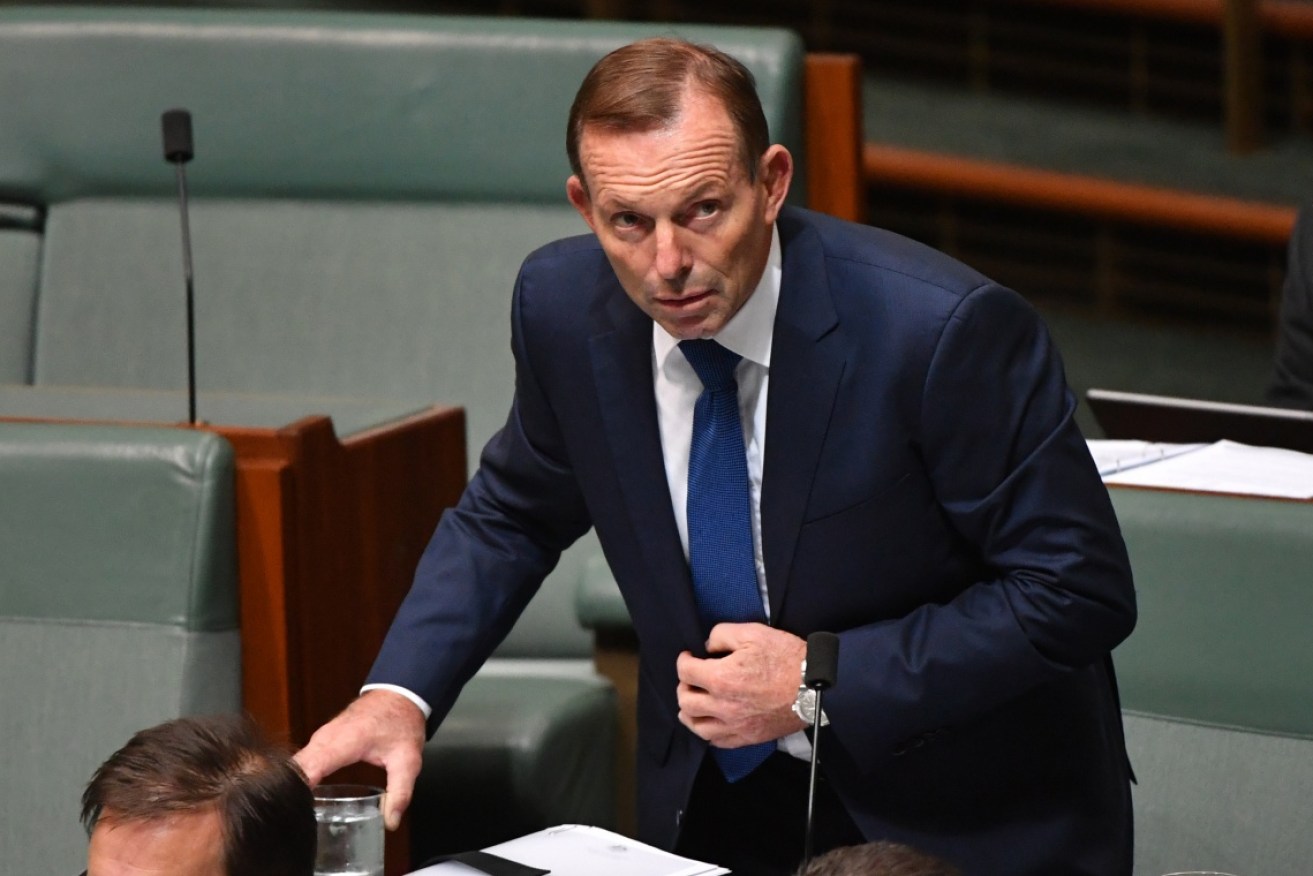Tony Abbott calls for everyone at ASIC to be sacked


Tony Abbott has blamed regulators for the AMP 'fee-for-no-service' scandal. AAP
Former prime minister Tony Abbott has blamed corporate watchdog ASIC for the “appalling” scandals exposed by the banking royal commission, but failed to mention his hand in cutting funding to the regulator.
Speaking to 2GB radio shock jock Ray Hadley on Monday, Mr Abbott claimed the banking sector was “probably the most regulated sector of our economy”, but that the regulators had not done their job properly.
“What were the regulators doing to allow all this to be happening? That’s the thing that keeps occurring to me every time I read fresh revelations,” the ex-PM, who is now a Liberal backbencher, said. He did not call on any bankers to be sacked.
But while he decried ASIC’s failure to stop the “appalling” behaviour of AMP and others, Mr Abbott did not mention that as prime minister he was responsible for slashing millions in funding to ASIC.
He also failed to acknowledge his government’s unsuccessful attempt to repeal some of the key consumer protections contained in Labor’s Future of Financial Advice (FOFA) reforms.
This latter move – one of the first major policies of the Abbott government – would have left consumers more vulnerable to the sort of unscrupulous and potentially criminal behaviour exposed by Justice Kenneth Hayne’s royal commission.
Mr Abbott’s comments came the same morning his successor Malcolm Turnbull admitted the government should have called the royal commission sooner.
Mr Turnbull had consistently opposed a banking royal commission, even after rebel Coalition MPs attempted to force his hand by threatening to set up a de facto royal commission through Parliament.
It was only when the banks themselves said a royal commission was necessary that Mr Turnbull yielded and made the announcement.
Tony Abbott’s pro-bank legacy
In 2013 the Gillard Labor government introduced the FOFA reforms to stamp out bad practice in the financial advice industry.
FOFA’s headline reform was a ban on so-called ‘conflicted remuneration’, a practice that saw financial product providers paying advisers commissions to sell their products.
FOFA also contained laws requiring advisers to act in the best interests of their clients.

Arthur Sinodinos was Tony Abbott’s first assistant treasurer. Photo: AAP
But following Mr Abbott’s victory at the 2013 election, his Coalition government quickly moved to repeal many of these reforms.
Assistant treasurer Arthur Sinodinos led the repeal process, which included amending the law to allow general advisers – that is, bank tellers – to receive commissions for recommending products.
Before FOFA, this was a key method of channelling bank customers into the banks’ investment products. The commissions served as an incentive for bank tellers to aggressively sell these financial products to unsuspecting customers.
Senator Sinodinos’ amendments also scrapped rules forcing advisers to disclose what fees they were charging clients, and abandoned a “catch-all” clause requiring financial advisers to act in their clients’ best interests.
These amendments would have made it much easier for banks to continue using ‘advisers’ as salespeople.
The amendments, while welcomed by the big banks, were widely condemned as a wind back of consumer protections, and were mostly defeated in the Senate.
In a major blow to the Coalition, even the main industry body for financial advisers, the Financial Planning Association (FPA), opposed many of the changes, claiming they risked undermining “the necessary evolution from ‘sales and distribution’ to professional advice centred on the client”.
Banks should ‘self-regulate’

Like most of her predecessors, current financial services minister Kelly O’Dwyer is an ex-banker.
In the Abbott government’s first budget in 2014, then-treasurer Joe Hockey announced $120 million would be slashed from the corporate watchdog ASIC’s funding over five years.
The budget papers stated ASIC would “adjust its priorities to ensure it continues to meet its statutory objectives”. The savings would go towards reducing the deficit and funding “policy priorities”.
In a post-budget breakfast the next day, Steven Ciobo, then the parliamentary secretary to the treasurer, explained the cuts as follows, as reported by the ABC.
“The government thinks that there is scope for the financial services industry, and for all the other industries, to self-regulate more,” Mr Ciobo said.
“There will always be (as a general statement of principle) our preference for self-regulation over the need to have a regulator [that is] taxpayer funded intervening in the field.”
The Coalition governments of Abbott and Turnbull have seen four ministers fill the role of assistant treasurer or financial services minister: Arthur Sinodinos, Mathias Cormann, Josh Frydenberg and Kelly O’Dwyer.
Three out of those four – Mr Sinodinos, Mr Frydenberg and Ms O’Dwyer – were all bankers before they entered politics. Mr Cormann worked for health insurance company HBF.








